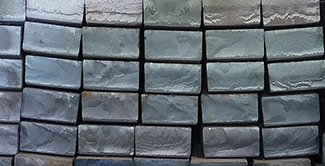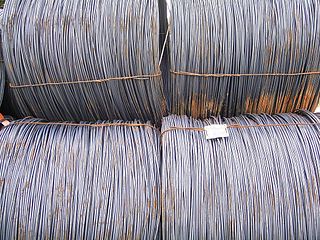
 Steel is an alloy made from iron and carbon. There are several distinct grades of steel that have unique chemical compositions based on the different amounts of carbon and added alloys.
Steel is an alloy made from iron and carbon. There are several distinct grades of steel that have unique chemical compositions based on the different amounts of carbon and added alloys.
When determining the type of steel that you want to buy, it is important to know there are four different types of steel that are classified based on their chemical structure and physical properties: carbon steels, alloy steels, stainless steels, and tool steels. We’ll outline each of the following steel types below.
Carbon Steel
Carbon steel is dull and matte in appearance and is vulnerable to corrosion. Carbon steel can contain other alloys, such as manganese, silicon, and copper. There are three main types of carbon steel: low carbon steel, medium carbon steel, and high carbon steel. Low carbon steel is the most common and typically contains less than .30% of carbon. Medium carbon steel contains up to .60% of carbon as well as manganese and is much stronger than low carbon steel. High carbon steel contains up to 1.5% carbon steel and is the strongest of the categories and can often be hard to work with.
Alloy Steel
Alloy steels are a mixture of several metals, including nickel, copper, and aluminum. Alloy steels tend to be cheaper and are used in mechanical work, car parts, pipelines, and motors. The strength and property of alloy steels depends on the concentration of elements they contain.
Stainless Steel
Stainless steels are shiny, corrosion resistant, and used in many products, including home appliances, backsplashes and cooking utensils. It has a low carbon content Stainless steel contains the alloy chromium and can also include nickel or molybdenum. Stainless steel is strong and can withstand high temperatures. There are more than 100 grades of stainless steel, making it an extremely versatile material that is customizable depending on your purpose.
Tool Steel
Tool steels are hard and heat and scrape-resistant. They are named tool steels because they are often used to make metal tools, such as stamping, cutting, and mold-making tools. Tool steels are made up of vanadium, cobalt, molybdenum, and tungsten in different amounts, which improve its durability and heat resistance properties. They are also commonly used to make hammers. There are several different grades of steel that can be used for distinct applications.





